As a personal trainer, I understand that visceral fat—the fat surrounding your internal organs—can be particularly stubborn to lose and harmful to your health. The good news is that high-intensity cardio workouts are among the most effective tools for torching visceral fat and improving overall metabolic health. These workouts not only help you burn calories during the session but also keep your metabolism elevated long after you’ve finished.
When tackling visceral fat, it’s essential to combine powerful bursts of effort with short recovery periods, which high-intensity interval training (HIIT) provides. This approach targets deep abdominal fat stores while enhancing cardiovascular health and building endurance. Whether you’re an experienced fitness enthusiast or a beginner ready to take on a challenge, these five high-intensity cardio workouts will help you see results in record time.
Each workout below is designed to push you to your limits while keeping things simple and efficient. You don’t need fancy equipment or hours in the gym—just your determination and the space to move. With consistent effort and proper nutrition, these exercises will help you reclaim your health and carve out a leaner, fitter physique.
The Workouts
Workout 1: Sprint Intervals
What you need: A flat, open area like a track, park, or treadmill. This workout takes about 20 minutes and delivers an incredible fat-burning effect by alternating between all-out sprints and active recovery.
The Routine:
- Sprint – 30 seconds
- Walk or Jog – 60 seconds
- Repeat for 8–10 rounds
Directions: Warm up for 5 minutes with light jogging or dynamic stretching. Then, sprint as fast as you can for 30 seconds, followed by a 60-second walk or slow jog. Repeat the cycle 8–10 times, and finish with a cooldown and stretches.
1. Sprint
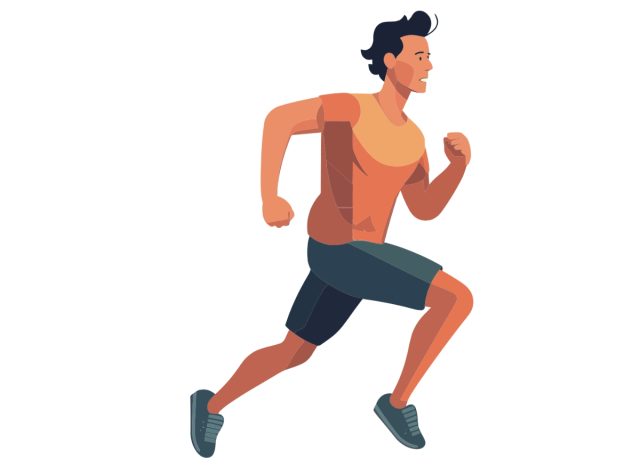
Sprinting is one of the most effective exercises for burning visceral fat, combining explosive power with full-body activation. It also strengthens your legs and core while improving cardiovascular capacity.
- Start standing tall with your feet hip-width apart.
- Take off into a sprint, driving your knees high and pumping your arms.
- Maintain your top speed for the entire interval, focusing on good form.
2. Walk or Jog
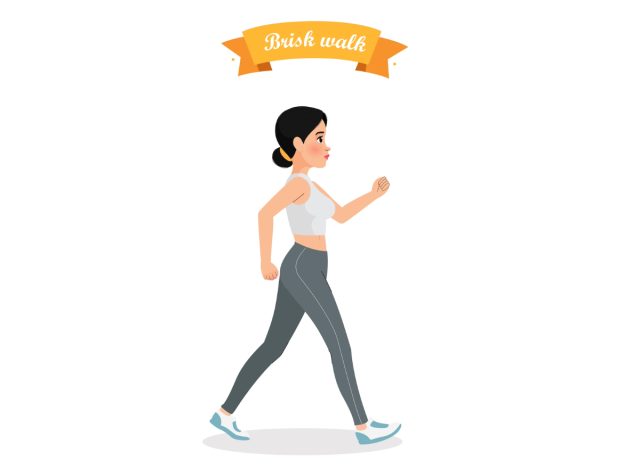
Active recovery helps maintain your heart rate in the fat-burning zone while preparing you for the next sprint.
- Slow down to a brisk walk or light jog.
- Keep moving and breathe deeply to recover.
Workout 2: Burpee Tabata
What you need: This workout requires no equipment and lasts just 4 minutes but packs a significant calorie-burning punch.
The Routine:
- Burpees – 20 seconds
- Rest – 10 seconds
- Repeat for 8 rounds
Directions: Perform as many burpees as you can during the 20-second work periods, resting for 10 seconds between each round. Push yourself to maintain intensity throughout all 8 rounds.
1. Burpee
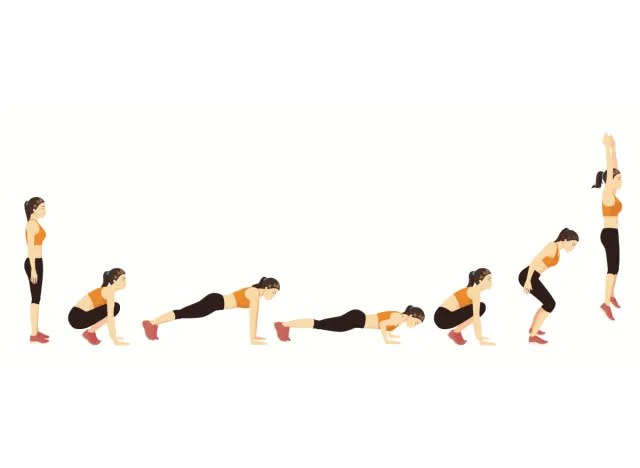
This total-body move combines strength and cardio to maximize fat-burning and metabolic impact. It also works your core, chest, shoulders, and legs.
- Start standing.
- Squat down and place your hands on the floor.
- Jump your feet back into a plank position.
- Perform a pushup.
- Jump your feet forward toward your hands.
- Explode upward into a jump and repeat.
Workout 3: Jump Rope HIIT
What you need: A jump rope and a timer. This 15-minute workout improves coordination and agility while incinerating visceral fat.
The Routine:
- Jump Rope – 40 seconds
- Rest – 20 seconds
- Repeat for 10 rounds
Directions: Warm up for 3–5 minutes with light jumping or marching in place. Alternate between intense jump rope intervals and rest for 10 rounds. Cool down with stretches.
1. Jump Rope
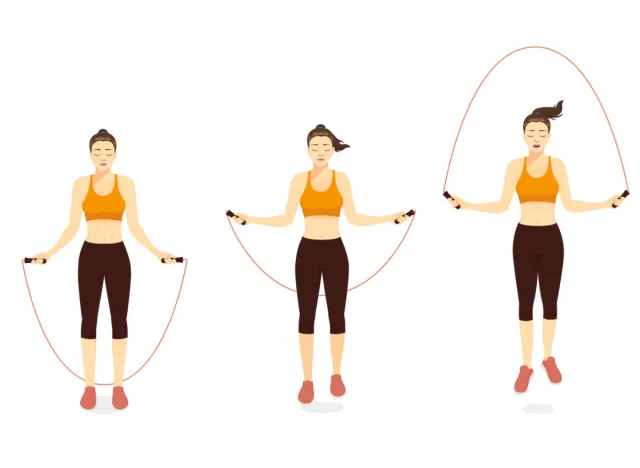
Jumping rope is an efficient way to burn calories, elevate your heart rate, and engage your core, shoulders, and legs.
- Hold the rope handles with elbows close to your body.
- Swing the rope over your head and jump as it passes under your feet.
- Land softly and maintain a steady rhythm.
Workout 4: Stair Climb Intervals
What you need: A set of stairs or a stadium. This 20-minute workout focuses on explosive power and calorie burn.
The Routine:
- Sprint up a set of stairs – 30 seconds
- Walk down the stairs – 60 seconds
- Repeat for 8–10 rounds
Directions: After a 5-minute warm-up, sprint up the stairs as quickly as possible, then walk back down to recover. Repeat for the designated rounds and finish with a cool-down.
1. Stair Sprint
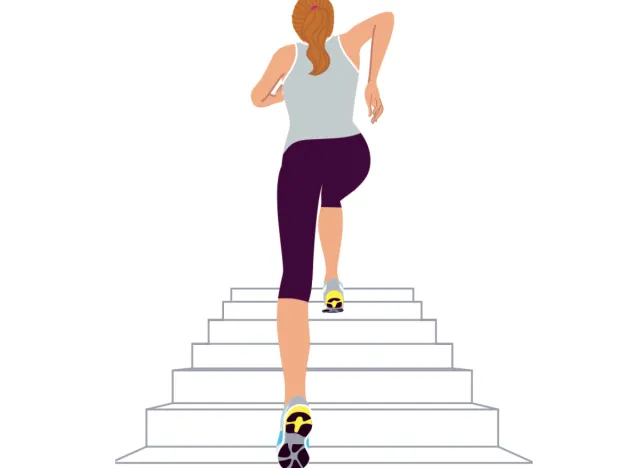
Climbing stairs engages your glutes, quads, hamstrings, and calves while increasing your heart rate to burn fat efficiently.
- Start at the bottom of a staircase, leaning slightly forward.
- Explode upward, taking one or two steps at a time.
- Use your arms for momentum and maintain a steady pace.
2. Walk Down
The recovery phase reduces your heart rate slightly, preparing you for the next effort.
- Descend the stairs carefully and steadily.
- Use the time to catch your breath.
Workout 5: Bodyweight Circuit
What you need: No equipment is needed, and this workout takes about 15 minutes. It combines multiple dynamic moves to torch calories and improve overall fitness.
The Routine:
- Jump Squats – 3 sets of 12 reps
- Mountain Climbers – 3 sets of 30 seconds
- Plank Jacks – 3 sets of 20 reps
Directions: Perform all three exercises in a circuit with minimal rest between them. Rest for 60 seconds after each round and repeat for 3 rounds total.
1. Jump Squats

This plyometric move burns fat while strengthening your lower body and core.
Stand with feet shoulder-width apart.
- Lower into a squat, then explode upward, jumping as high as possible.
- Land softly and immediately go into the next squat.
2. Mountain Climbers
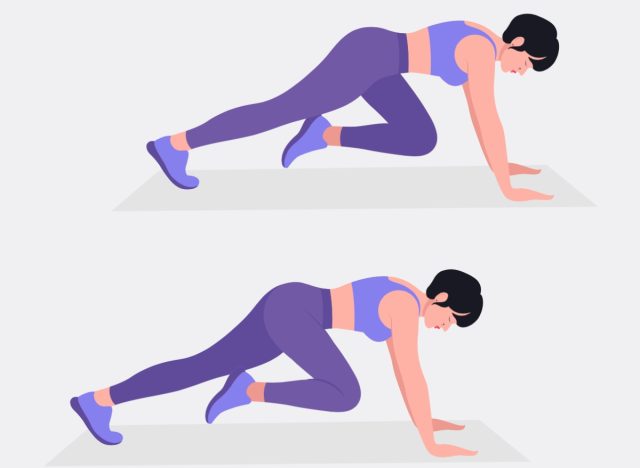
Mountain climbers elevate your heart rate while engaging your core, shoulders, and legs.
- Start in a high plank position with your wrists under your shoulders.
- Drive one knee toward your chest, then quickly switch legs.
- Continue alternating for the entire interval.
3. Plank Jacks
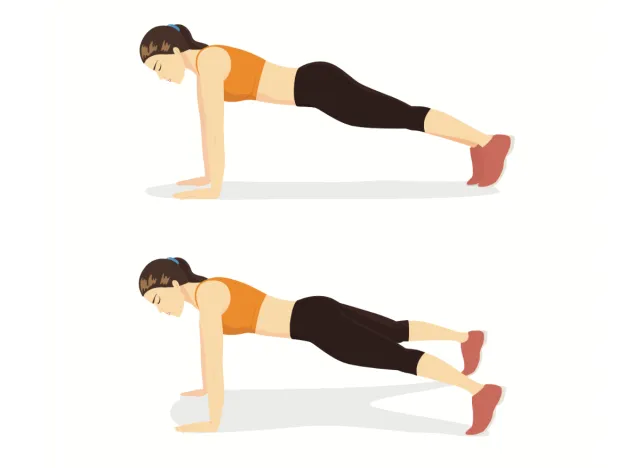
- This move targets your core while giving your cardiovascular system a boost.
- Start in a plank position with your feet together.
- Jump your feet out wide, then back together, like a jumping jack.
- Maintain a tight core throughout.
Tyler Read, BSc, CPT


